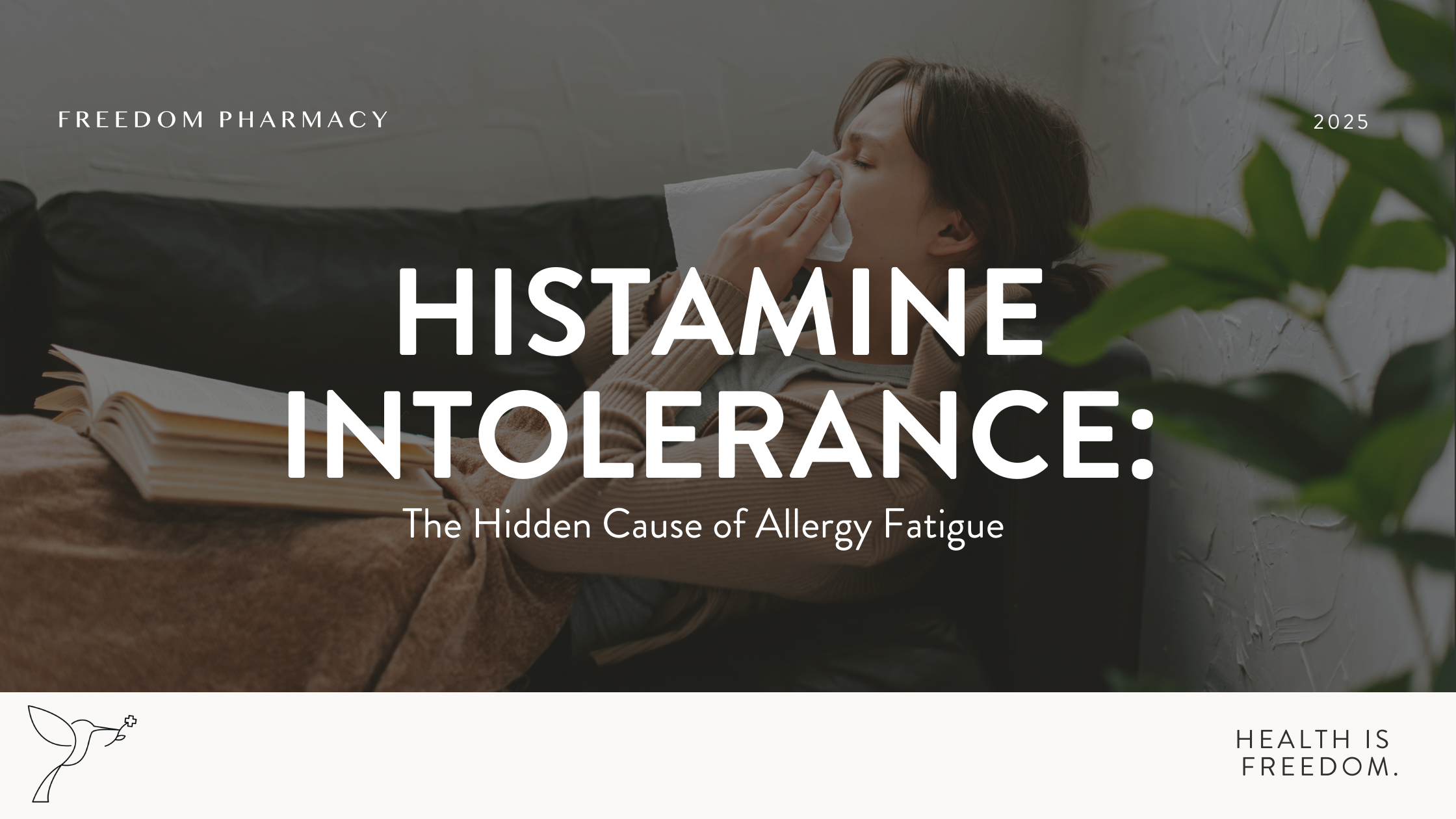Why Allergy Meds Aren’t Enough: The Missing Link in Allergy Relief
Mississippi allergy season is relentless. The sneezing, congestion, itchy eyes, and sinus pressure can make it hard to focus, sleep, or even enjoy the outdoors. Many people turn to over-the-counter (OTC) antihistamines, hoping for relief. But what if your allergies aren’t just about pollen?For some, natural allergy relief in Mississippi starts with understanding histamine intolerance. If you take allergy meds but still feel congested, foggy, or constantly battling symptoms, your body may be struggling to process histamine efficiently. Understanding how histamine works—and why balancing it is key—could be the difference between short-term symptom relief and long-term allergy control.
Why Are Allergies So Bad in Mississippi?
Mississippi’s long growing season and high humidity intensify allergy symptoms by keeping pollen, mold, and dust mites around nearly year-round. If you feel like your allergies never fully go away, it’s likely because multiple allergens are at play.
✅ Tree pollen (Spring: March-May) → Oak, pine, cedar
✅ Grass pollen (Summer: June-August) → Bermuda, ryegrass
✅ Weed pollen (Fall: September-November) → Ragweed, goldenrod
✅ Mold & dust mites (Year-round) → Thrive in Mississippi’s humid climate
If you take allergy meds but still wake up congested every morning or struggle with lingering sinus pressure, histamine overload—not just pollen—could be the root cause.
Histamine Intolerance: The Hidden Cause of Allergy Fatigue
Histamine is a natural chemical in your body that helps fight off allergens. But when your body can’t break it down properly, histamine builds up—leading to congestion, headaches, itchy skin, and even digestive issues.
Signs of Histamine Intolerance:
✔ Struggling with constant congestion and sinus pressure? This could be a sign of histamine overload.
✔ If your allergies worsen after eating foods like wine, aged cheese, or fermented foods, your body may not be breaking down histamine efficiently.
✔ Some people experience itchy skin, headaches, or digestive issues alongside their allergy symptoms.
✔ Even when pollen levels drop, lingering allergy symptoms could point to histamine intolerance.
This means pollen may not be the only issue—your body’s histamine overload could be making symptoms worse.
Why Allergy Meds Don’t Always Work
Most OTC allergy medications, like Benadryl, Zyrtec, and Claritin, work by blocking histamine receptors—temporarily preventing histamine from triggering symptoms like sneezing and congestion. However, here’s where the issue lies:
✅ First, these medications provide only short-term relief. Antihistamines block histamine, so you experience fewer symptoms for a few hours.
🚫 Second, they don’t reduce histamine buildup. These medications don’t help your body process or break down excess histamine, so as soon as they wear off, symptoms return.
⚠️ Finally, side effects can be a major drawback. Some people experience drowsiness, brain fog, or dryness from OTC antihistamines because they shut down histamine activity completely, rather than balancing it.
Histamine Intolerance: The Missing Piece
Histamine is a natural chemical that supports immune responses, digestion, and nervous system function. When allergens like pollen, dust, or pet dander enter your system, your body releases histamine to fight them off. This reaction triggers sneezing, congestion, and inflammation.
Normally, histamine breaks down and clears quickly. However, some people experience a buildup faster than their body can process it. The result? Chronic congestion, lingering sinus pressure, and allergy symptoms that never fully disappear.
Signs of Histamine Intolerance
✔ Constant congestion & sinus pressure
✔ Worsening allergies after eating certain foods (wine, aged cheese, fermented foods)
✔ Itchy skin, headaches, or digestive issues along with allergies
✔ Allergy symptoms that don’t fully go away, even when pollen levels drop
Many Mississippi allergy sufferers experience histamine overload without realizing it—especially if they feel like their symptoms persist despite taking antihistamines.




